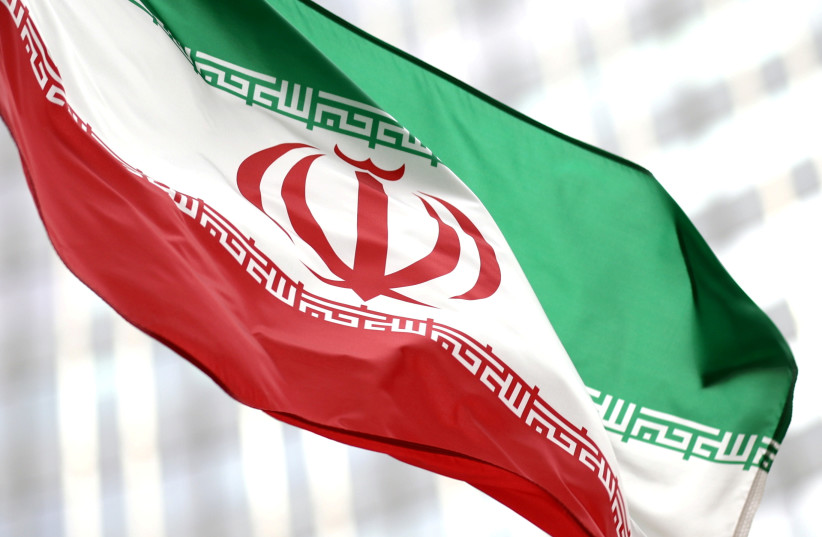WASHINGTON – Special US Envoy for Iran Robert Malley will lead an interagency team to the United Arab Emirates, Israel, Saudi Arabia and Bahrain beginning Thursday until November 20, the State Department announced. It would be Malley’s first visit to Israel since he joined the Biden administration as special envoy to Iran.
Malley’s visit comes as the US is gearing up to the US and Iran resuming indirect negotiations on November 29 toward a mutual return to the 2015 JCPOA nuclear agreement.
According to the State Department, Malley and his team will arrive in the region “to hold consultations with partners and attend a series of regional engagements,” and to “coordinate our approaches on a broad range of concerns with Iran, including its destabilizing activities in the region and the upcoming seventh round of talks on a mutual return to full compliance with the JCPOA.”
Michael Oren, former Israeli ambassador to the US, said “Israel must make it unequivocally clear to Rob Malley that it cannot tolerate Iran’s achievement of threshold capacity that is the ability to make nuclear weapons within a matter of weeks or even days. Israel must also make it unequivocally clear that any agreement with Iran must effectively block its path to a threshold capacity by physically dismantling its nuclear infrastructure, and by greatly extending the sunset clauses. Israel should demand concrete measures to stop Iran’s intercontinental ballistic missile system and its development of a nuclear warhead. America can maybe coexist with a threshold Iran, but Israel can’t.”

Ambassador Martin Indyk, distinguished fellow at the Council on Foreign Relations and former US ambassador to Israel, said “It’s good practice to consult with our regional allies before the negotiations with Iran resume. They have even more at stake than we do.”
According to Indyk, “the purpose is to coordinate and reassure them that there will be no surprises. Malley knows well by now that Israel is opposed to returning to the agreement. He can try to reassure them by discussing how their concerns can be met by other means.”
Ambassador Dennis Ross, distinguished fellow at the Washington Institute for Near East Policy, said Malley traveling to these countries ahead of the resumption of Vienna talks shows that he wants “to share our views and how we will approach these discussions, and also to show he wants to hear from those in the region their assessments and views of Iran’s likely tactics.”
The countries where Malley is preparing to visit can give their latest views of current Iranian actions in the region, “especially in Iraq, Syria and Yemen and how this may relate to Vienna,” Ross said.
Asked what Israel should insist on when meeting with Malley and his team, Ross said that Israel could ask how the US will deal with an Iran that is playing for time even as its enrichment at 20% and 60% proceeds – and whether the US will push the Board of Governors of the IAEA to refer Iran to the UN Security Council at the end of the month based on its current nuclear actions and denial of IAEA access to data.
“Since Iran is likely to threaten [to boycott] participation at Vienna if there is a Board of Governors resolution critical of its behavior, this becomes an early test of how [the US] will be approaching Iran’s likely tactics,” he said.
Senator Chris Van Hollen (D-Maryland), a member of the Senate Subcommittee on Near East, South Asia, Central Asia, and Counterterrorism, said “the whole goal of the negotiations is to prevent Iran from [pursuing] its continuing nuclear enrichment program. They have exceeded the limits that were in the JCPOA. The JCPOA established those constraints; the previous administration pulled out of it, and so the Iranians no longer complied with the provisions of that agreement.”
Van Hollen added that it is “important to get back to the table, reapply those limitations, and then also work on other issues regarding the malign Iranian influence in the region.”
Malley’s visit will coincide with a different high-level visit: US Ambassador to the UN Linda Thomas-Greenfield will travel to Jerusalem, Ramallah, and Amman on November 14-19.
“Ambassador Thomas-Greenfield will be the first US cabinet official to visit Israel since the formation of its new government in June,” said the US Embassy in Jerusalem. “Ambassador Thomas-Greenfield will meet with senior Israeli officials to reinforce the United States’ unwavering commitment to Israel’s security, and discuss continued US-Israel cooperation at the UN and a full range of regional issues. She will also visit Yad Vashem, the World Holocaust Remembrance Center, where she will tour the museum and lay a wreath to commemorate victims of the Holocaust.”
Lahav Harkov contributed to this report.
